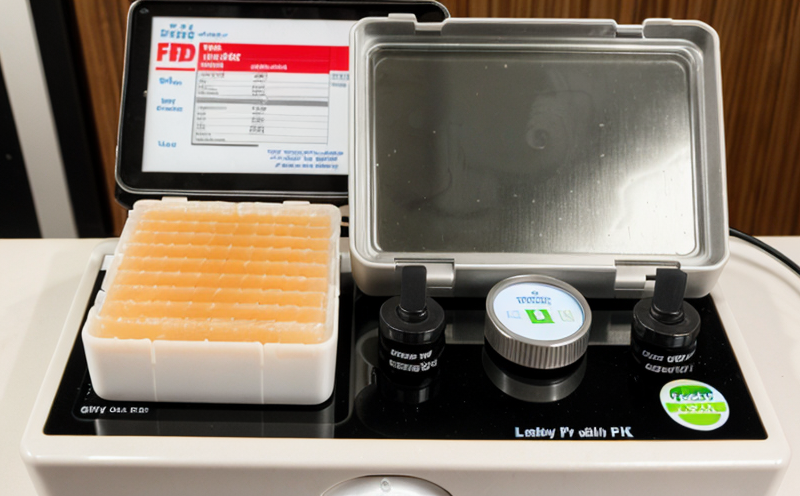EN 14804 Trans Fatty Acid Analysis in Bakery Products
The European Standard EN 14804 outlines a method for determining trans fatty acid (TFA) levels in bakery products. This standard is crucial due to the health implications of TFAs and the regulatory requirements imposed by numerous countries around the world. The primary purpose of this analysis is to ensure compliance with food safety regulations, particularly those aimed at reducing the intake of harmful TFAs that have been linked to increased risk factors for cardiovascular diseases.
Bread and other bakery items are often consumed in large quantities, making it essential to monitor their TFAs content accurately. The EN 14804 method is designed to be sensitive enough to detect even trace amounts of trans fats, which can help food manufacturers adjust formulations to meet consumer demand for healthier products.
The analysis involves several steps starting from sample preparation up to the final quantification using gas chromatography (GC). Sample preparation includes homogenization and extraction methods that ensure a representative sample is analyzed. The extracted fatty acids are then separated by GC, which allows for precise identification and measurement of TFAs.
Understanding the significance of this test requires an appreciation of its broader implications in public health and food safety. By adhering to EN 14804, manufacturers not only comply with legal requirements but also contribute positively towards improving consumer health by reducing exposure to potentially harmful TFAs. This standard is particularly relevant for companies operating within the European Union (EU) as it directly addresses EU regulations on trans fats.
The procedure described in EN 14804 ensures consistency and accuracy across different laboratories, making it a reliable method for assessing TFAs in bakery products. Compliance with this standard helps ensure that the food industry remains transparent about its product composition, fostering trust among consumers who are increasingly concerned about their dietary intake.
Another critical aspect of EN 14804 is its role in supporting research and development (R&D) efforts aimed at formulating healthier bakery products. By providing precise data on TFAs levels, the standard facilitates innovation by allowing manufacturers to experiment with alternative ingredients or processes that reduce TFAs without compromising taste or texture.
The importance of EN 14804 extends beyond just compliance; it plays a vital role in maintaining public confidence regarding food safety standards. As such, adherence to this standard is not merely optional but essential for any company involved in the bakery products sector seeking to uphold its reputation and meet regulatory expectations.
Benefits
- Ensure compliance with EU regulations on trans fats
- Promote healthier product formulations
- Increase consumer trust by providing transparent information about product composition
- Achieve consistency and accuracy in analytical results across different laboratories
- Foster innovation through precise data on TFAs levels, enabling R&D efforts aimed at developing healthier bakery products
- Support research into alternative ingredients or processes that reduce TFAs without compromising the quality of the product
Why Choose This Test
- Adherence to international standards ensures reliability and accuracy in results.
- The method is sensitive enough to detect even trace amounts of trans fats, providing valuable insights into product composition.
- It supports regulatory compliance which can help avoid legal issues and penalties associated with non-compliance.
- By ensuring consistent quality across all products, it enhances brand reputation among health-conscious consumers.
- The test facilitates continuous improvement in product formulations by offering precise data on TFAs levels.
International Acceptance and Recognition
EN 14804 has gained widespread recognition globally, not just within the European Union but also in other regions where there is growing concern about trans fats. Its acceptance reflects its robustness as a testing method that meets rigorous quality control standards.
The standard’s international acceptance underscores its value for food manufacturers worldwide who seek to ensure their products meet stringent health and safety requirements. By adopting EN 14804, companies can demonstrate their commitment to producing safe and nutritious bakery products, thereby enhancing their market competitiveness in both domestic and export markets.
Moreover, the standard’s widespread adoption indicates its relevance beyond mere compliance with local laws; it serves as a benchmark for best practices in food testing. Its international recognition also means that laboratories accredited according to EN 14804 are trusted by regulatory bodies globally, further enhancing their credibility and authority within the industry.





